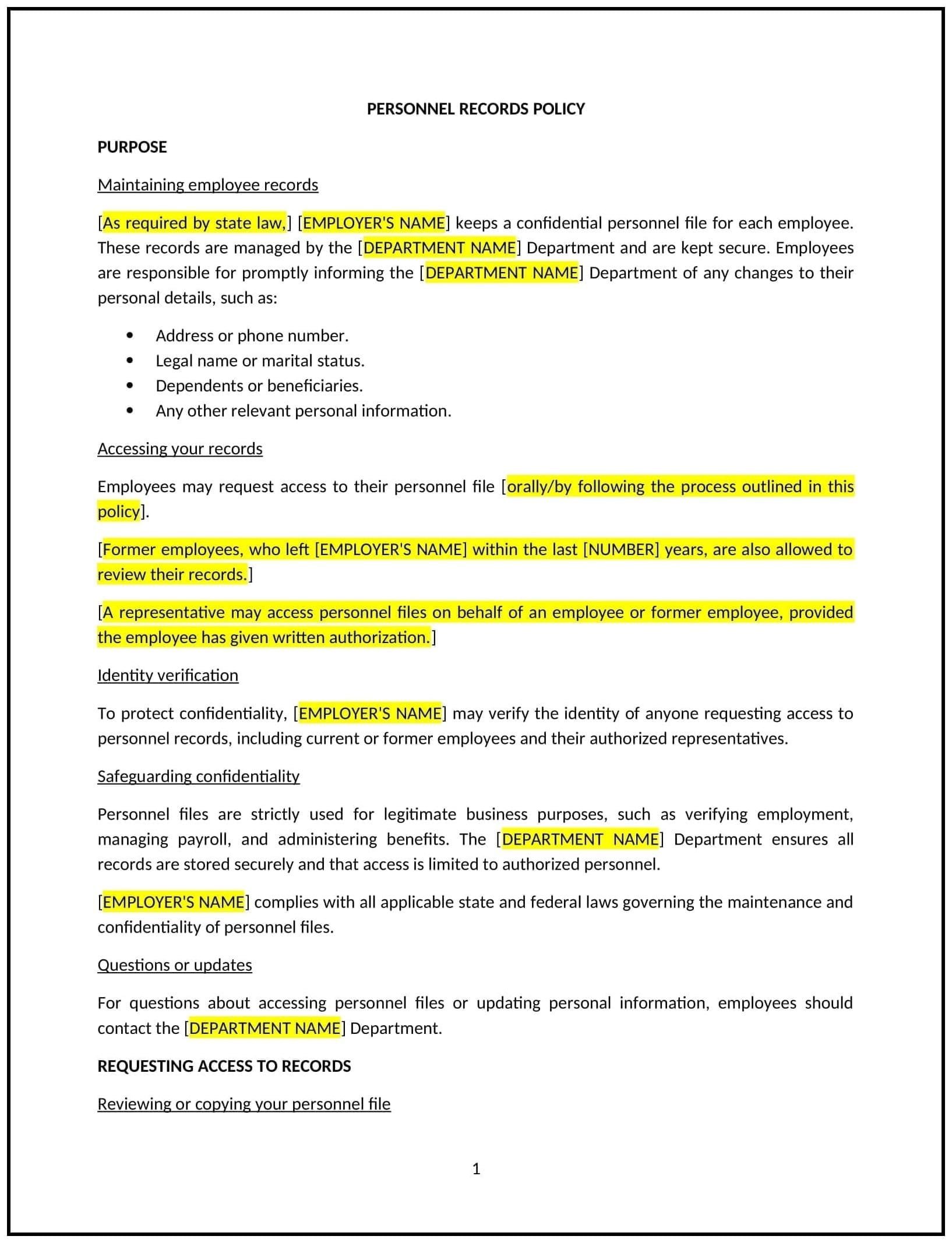Personnel records policy (Rhode Island): Free template
Got contracts to review? While you're here for policies, let Cobrief make contract review effortless—start your free review now.

Customize this template for free
Personnel records policy (Rhode Island)
This personnel records policy is designed to help Rhode Island businesses establish guidelines for maintaining, accessing, and protecting employee records. It outlines procedures for record retention, confidentiality, and compliance with state and federal laws.
By adopting this policy, businesses can ensure accurate record-keeping, protect employee privacy, and maintain compliance with legal requirements.
How to use this personnel records policy (Rhode Island)
- Define scope: Clarify which types of records are covered, such as employment applications, payroll records, and performance evaluations.
- Establish retention periods: Specify how long different types of records will be retained, in compliance with Rhode Island and federal laws.
- Address access and confidentiality: Provide guidelines for who can access personnel records and how confidentiality will be maintained.
- Set procedures for updates: Outline steps for updating records, including employee notifications and corrections.
- Train employees: Educate staff on record-keeping practices and the importance of confidentiality.
- Monitor compliance: Regularly review record-keeping processes to ensure adherence to the policy.
- Review and update: Assess the policy annually to ensure it aligns with evolving legal standards and business needs.
Benefits of using this personnel records policy (Rhode Island)
This policy offers several advantages for Rhode Island businesses:
- Ensures compliance: Aligns with Rhode Island labor laws and federal regulations, such as the Fair Labor Standards Act (FLSA).
- Protects privacy: Demonstrates a commitment to safeguarding employee information.
- Enhances transparency: Provides clear guidelines for maintaining and accessing personnel records.
- Reduces risks: Minimizes the likelihood of legal disputes or penalties related to record-keeping.
- Builds trust: Fosters a positive workplace culture by prioritizing employee privacy and accuracy.
Tips for using this personnel records policy (Rhode Island)
- Communicate the policy: Share the policy with employees and include it in the employee handbook.
- Provide training: Educate staff on record-keeping practices and the importance of confidentiality.
- Monitor compliance: Regularly review record-keeping processes to ensure adherence to the policy.
- Address issues promptly: Take corrective action if record-keeping errors or breaches occur.
- Update regularly: Assess the policy annually to ensure it aligns with evolving legal standards and business needs.